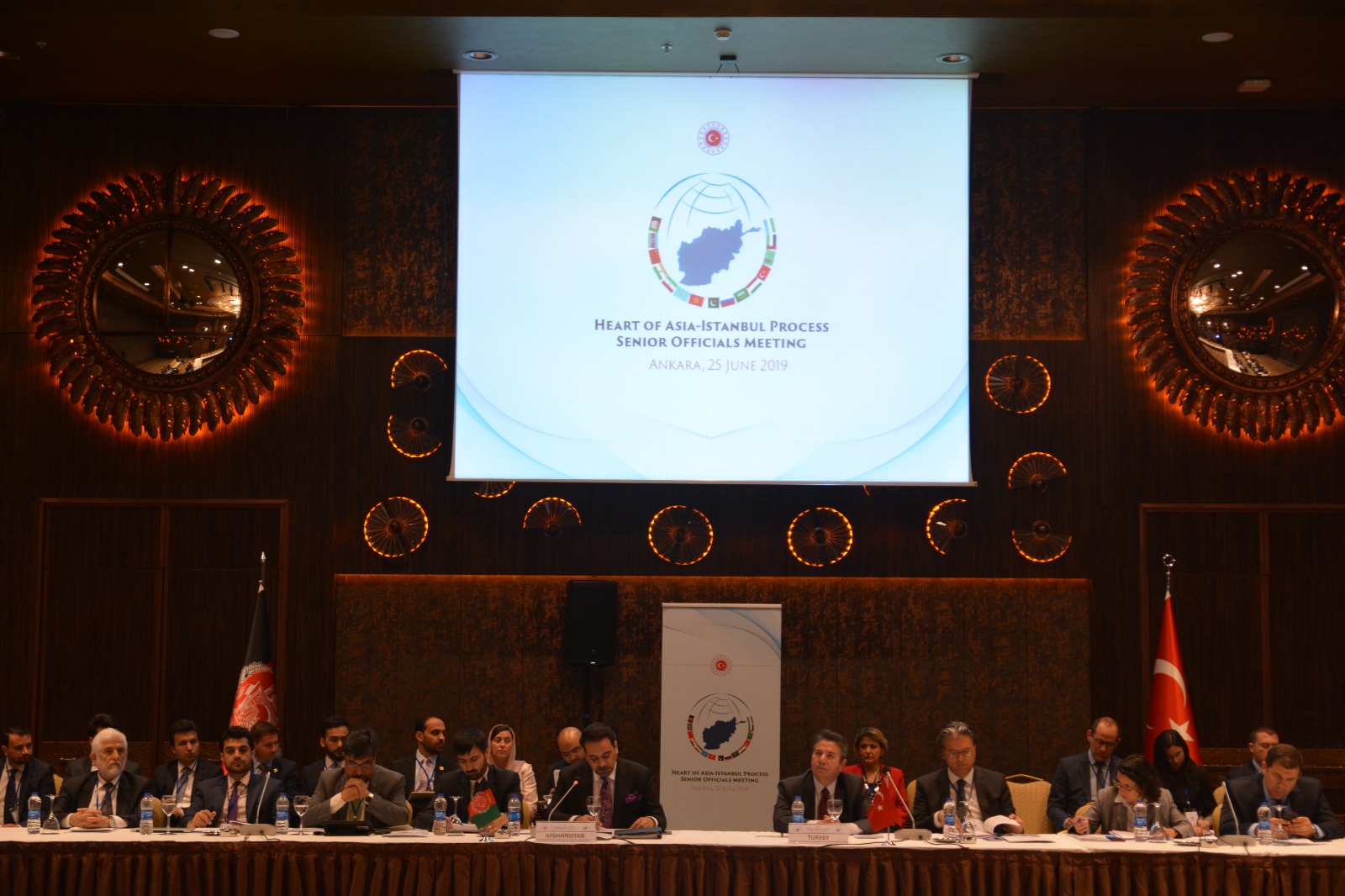“Heart of Asia – Istanbul Process” Preliminary Meeting was held in Ankara with the participation of senior officials from Turkey, Afghanistan and representatives of member states and their sponsor organizations (June 25).
The first meeting of “Heart of Asia – Istanbul Process 2011” was held with the participation of foreign ministers from 14 countries including Afghanistan, Azerbaijan, China, India, Iran, Kazakhstan, Kyrgyzstan, Pakistan, Russia, Saudi Arabia, Tajikistan, Turkey, Turkmenistan and the United Arab Emirates.
The second meeting of the “Heart of Asia – Istanbul Process 2012” was hosted by Afghanistan, the third round (2013) was held in Kyrgyzstan, the fourth (2014) in China, the fifth (2015) in Pakistan, the sixth (2016) in India with participation of delegates from 40 countries, the seventh (2017) in Azerbaijan under the theme “security and economic connectivity to improve the situation in the Heart of Asia”.
Australia, Canada, Denmark, Egypt, France, Finland, Germany, Iraq, Italy, Japan, Norway, the Netherlands, Spain, Sweden, the United Kingdom and the United States are also countries that support this trend. Several regional and international organizations have also supported it.
As noted above, the conference began in Istanbul in 2011, and in the first place neighbouring countries of Afghanistan, such as Iran and China, which share borders with this country, and in the second place neighbouring countries that do not have a common border but have influence, such as Turkey, Qatar, Russia, Saudi Arabia and India attended the conference.
These countries have proposed a plan to somehow help Afghanistan achieve peace by adopting a regional outlook about the country’s problem. Because the trend followed by the Americans is one that will let the Western powers take the initiative. As a result, the Istanbul Process was launched to enable Afghanistan’s neighbouring countries to pursue another trend to attain Afghan peace.
Because there is a perception that every issue in Afghanistan will somehow affect its neighbouring countries: countries that share borders with Afghanistan or countries that have some kind of interests there. Therefore countries that are covered by each of these groups attended the Heart of Asia – Istanbul Process meeting to help track the peace process in Afghanistan. It should also be noted that this initiative was originally proposed by Iran, but later it was more followed by Russia.
With these points in mind, the overall agenda of this meeting is how to help Afghanistan establish peace in the country and how the Taliban will reach understanding with Afghan government forces. Another goal of the meeting is the diminution of the role of the United States and NATO in Afghanistan, as Doha talks have so far advanced to some extent, and the Taliban and Americans are said to have agreed on two main demands of the parties.
The US wanted the Taliban to negotiate with the central government and accept the peace process, and the Taliban demand complete US troop withdrawal from Afghanistan. In the Doha talks apparently they have reached some conclusions and the ground has been prepared to make the talks somewhat intra-Afghan. However, the situation is now more favourable than the past, and for this reason, it is expected that the Heart of Asia – Istanbul Process meeting will contribute to the establishment of peace and stability in Afghanistan, in the interests of the countries neighbouring Afghanistan more than before.
Finally, it should be noted that such meetings are in some way aimed at countering the unilateralism of the United States of America in the world, and in this regard, in particular, the American initiative on Afghan peace is largely questioned.
It is very important for the countries of the region to play a role in the complex issue of Afghanistan, and the presence of China and Russia in this summit has further affected the trend of US unilateralism.
When other influential sources of power are involved in important global developments linked to peace and stability, these powers can also play a role, and so we will witness the strengthening of multilateralism globally. It should be borne in mind that the Europeans are also aligned with this process, and even their interests demand that the United States will not be the lone rider and advance its own policies. Meanwhile, the United States, too, has supported this process because Washington will support any move that will help build peace and stability in Afghanistan. In fact, there is a common goal between all the countries, namely establishing peace in Afghanistan, but the difference is in the question as to who holds the initiative.










0 Comments